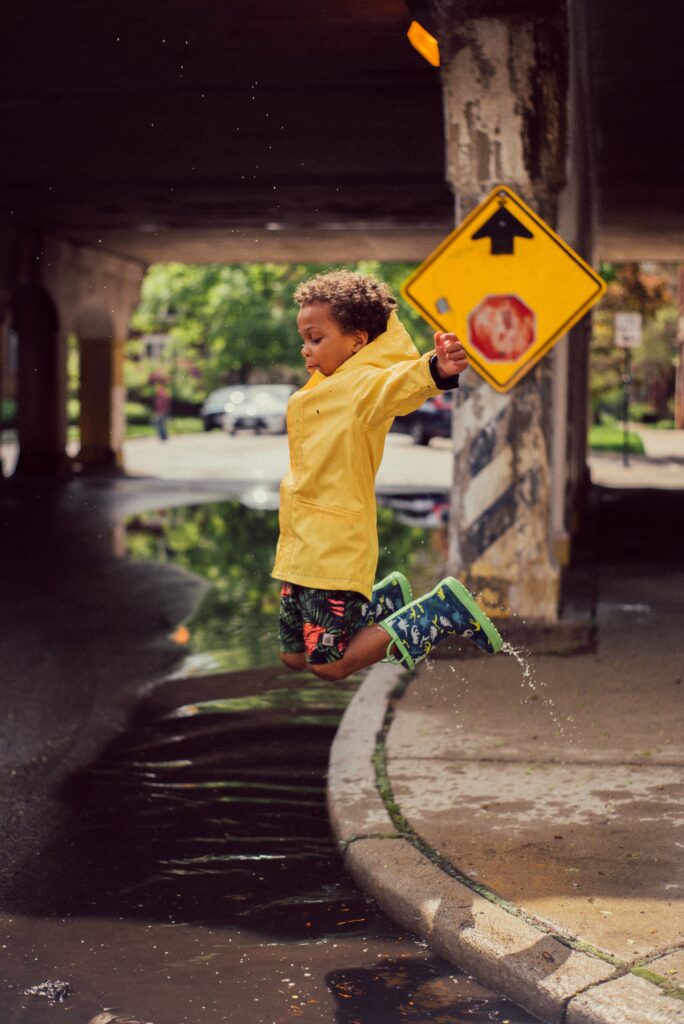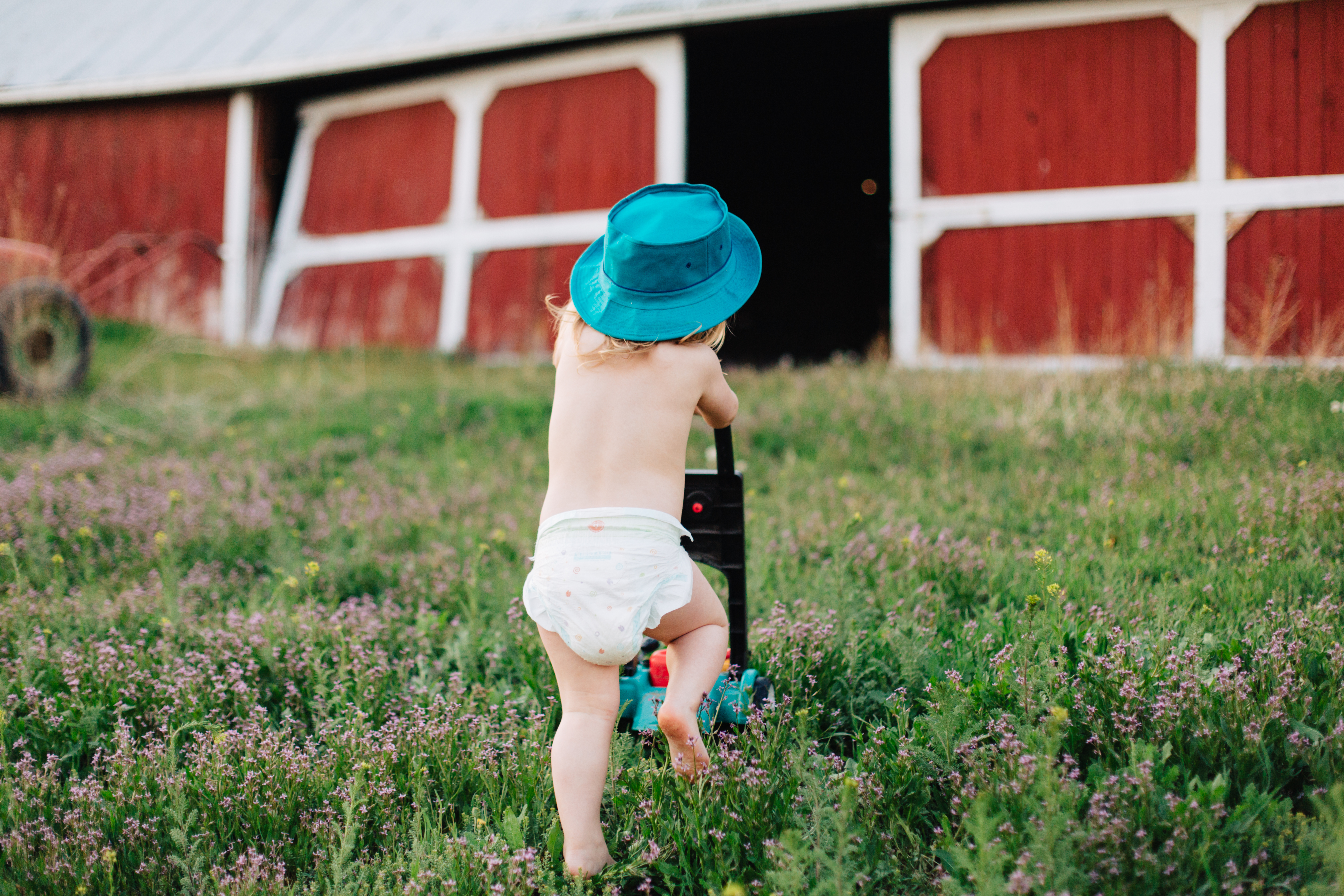We spoke to Zelda Yanovich, founder of human.dev, about how parenting styles are evolving and how technology can help us evolve past the limits of helicopter parenting.
Zelda Yanovich is the founder of human.dev (the co- creator of this issue). Her career has spanned work with the United Nations, the BBC, and the LEGO foundation”. Throughout, she has focused on the science of learning and early child development. Zelda is also an advisor for the Real Play Coalition, Brookings Institute Playful Learning Landscapes and Intrinsic Labs.
You’re both a parent and someone who has studied child development deeply. What are the most important lessons you’ve taken from your work into your own parenting style?
The principles that I hold really close are warmth, love and autonomy support. And what we’re learning from neuroscience is how important that autonomy support is. To explain this visually, think about how we walk behind a young child. We walk behind them, trying to give them a couple of feet of space, and if they fall, we lift them up and help them try again.
They get that space to experiment, to fail, to succeed, but we’re not taking control of the journey. I think that space is really important, as well as creating a sense of safety and structure for your child to experiment with.
The other thing I always say is that the only way we’re going to get our kids to experiment is if we model it ourselves. So we should, as parents, allow ourselves to try new things, and see if it’s working or not. We need to find permission to be kind to ourselves and enjoy that process together.
When you look at parenting today, what do you think are the most important forces shaping how we parent-and how we think about child development?
One important trend for parents is this sense that there is a lot of competition. A lot of competition to get into the right schools, for university places, for the right professions, et cetera. As parents, if we are focusing on that sense of competition, we’re upping the stress for ourselves and moving to a fight-or -flight mode.
Parents are stressed out about doing it wrong, about whether they’ve done all of the things that their neighbour down the road has done to ensure their child’s success. If that’s the environment you exist in, I think you’re likely to come out fighting for your child.
"As parents we’re in fight- or-flight mode."
What a lot of academics are talking about is that helicopter parenting has emerged from this environment and parents are trying to support their child. They’re clearing the pathway for them because they perhaps lack trust in the meritocracy and they want to prevent their children from slipping backwards.
What do you think the costs are for parents and kids in the “helicopter parenting” model?
There’s a cost in terms of building a child’s confidence, their self-regulation, resilience, and their creativity. If you want them to explore the world, you need to give them more autonomy. Many kids have just been driven to violin class and extra maths tuition, and haven’t truly shaped their own journey. That has a cost on that child’s potential happiness, confidence, and social and emotional skills. Moving forward, I see a huge amount of emphasis on social and emotional skills.
We know that kids who are confident and have strong social and emotional skills do better in school and eventually have more successful careers. They have a more civic nature, and they give back more to society. It’s a win-win situation. And so, as nations begin to compare their education systems based on the development of social and emotional skills, and universities start to do the same-it’s sort of adding more fuel to that fire of parents seeing that as their role, too.

There’s been a lot of talk recently of the growing anxiety crisis among both parents and children. Is there a connection here?
There’s been a massive spike in anxiety, certainly in countries like the US, the UK-and across Europe. Normally, we talk about exponential growth in the content of positive trends around technology, but we’re seeing some really worrying numbers around anxiety and depression. It’s also happening unequally, so families in poverty or high-crime areas are most at risk.
I think parents are feeling like they need to respond to this, and that this is an important area for them alongside the schools, the sports coaches, and others. We need to find the space to begin to talk about and explore emotions. I think the challenge for parents, and I can put my own hand up here, is that we don’t talk about that stuff. Do we have the language to kind of have this dialogue with our children? I think a lot of parents are realising it’s a skill set we need to sort of experiment with and get more comfortable with.
Any time an issue like anxiety is acknowledged, it seems that “technology” is quick to be blamed. Do you think there is a case?
I agree with you that there is this sort of media frenzy around technology as a cause, and that doesn’t stand up in terms of the science. It’s more complex than any one answer. What do we even mean by the word technology? You know, do we mean watching television together? It’s way too simplified a narrative.
Do you think the digital world can play a meaningful role in giving children the space to grow up?
Kids used to be able to go outside, to go on their bikes and run around with the kids in your neighbourhood. The fact that kids can now go online, and they can experience anything and everything, well, it’s gigantic in some ways. I see kids coming to parents and asking, What do I do with this access? They’re asking: How do I make sense of what this guy’s saying to my friends in a chat room? And they need parents to play a slightly different sort of guiding friendship role.
As parents and caregivers, we need to have our door open to that. We need our kids to see us as someone that they can chat with as they shape their journey.
"The fact that kids can now go online and experience anything and everything, it’s gigantic."
You’ve previously explained that you see parenting naturally evolving to a more “friendship” based model. Could you explain more what you mean by this?
So, a lot’s been written about how you shouldn’t aspire to be your child’s friend, because you’re supposed to be a parent, right? Like you should maintain the structure and the safety of that authoritative parenting style. I think there’s a lot of merit in that, and I wouldn’t want to totally move away from it. I just see that, within the parenting structure, it’s important to be alongside your child in their exploration of emotions and social skills, and to create that space for children where they have autonomy, where they can explore, experiment, make mistakes.
How should the environment and support around parents needs to change to help them more?
I don’t think it has helped that parents have felt under so much pressure. As a baby, when you’re looking at your parents’ faces and they smile, you smile back; when they stick their tongues out, you stick your tongue out back. That is the child quickly understanding the parents’ emotions, and how those emotions play out. It’s unbelievable how sensitive children are to the levels of stress that parents and caregivers are experiencing.
So, it’s easy to blame technology. But you might equally ask what’s been the support for that family unit and that child as they’re growing up and learning to manage their emotions? I really love how technology can help boost a parent’s confidence and help them understand that they are all their child needs. I think that platforms like Facebook and BabyCenter are taking us back to the idea that it takes a village to raise a child.
How might technology evolve to help parents more, too?
I’m excited about where the design of technology is going, because I think at the moment, we’ve all got a phone in our hands. We’re not the best at sharing that screen with someone else-it’s seen as a little bit of a solo sport. There’s research that showed two-year-olds reading a book with a parent and caregiver, and they really want to interact with the parent or caregiver. You give them the same book on the tablet, and then the child literally moves away from the parent.
I think that has something to do with the hardware and that we’re moving towards new technology. I think it also links to modelling: I make a conscious effort to share text messages that come in with my kids, to build out this sense that the screen can create shared experiences. But I’m excited to see how we create those shared experiences using technology as human-centred design takes root.
Download the full report, The Parenting Upgrade, here.


No Comments.